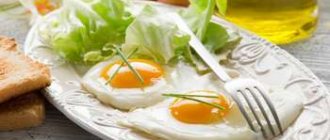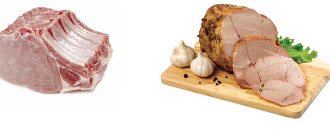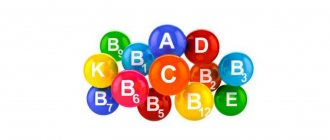Dietary properties:
What calorie content does smoked sausage cheese have, what dietary properties does it have, all this is of interest to those who lead a healthy lifestyle and monitor their health and figure. So we will try to answer these questions in the next article.
So here it is:
Smoked sausage cheese is part of the group of processed sausage cheeses. The raw materials for its production are low-fat cheese and quick-ripening cheese. It also includes other additives. Once melted, the cheese mass is enclosed in a cellophane (or parchment) shell, after which it is smoked, cooled and waxed.
It is distinguished by that peculiar aroma and taste that are characteristic of all smoked products. Under the shell it forms a dense “crust” of golden color. This type of cheese can serve as an independent dish or as an addition to pizza and various salads.
If we compare it with hard varieties, processed cheese is absorbed by our body one hundred percent, and, moreover, contains less cholesterol. It is a source of calcium and phosphorus, which we need for healthy nails, bones and hair.
The fats contained in it are very nutritious - and sausage cheese is also processed. Due to this, the calorie content of this product is high. But these same fats serve as a source of fatty acids and vitamins A, D, E for the body. This type of cheese contains very high quality protein, which contains a number of amino acids we need.
Its harm, as well as its benefit, lies in the composition of the product, which is characterized by a high cholesterol content. Nutritionists do not recommend including smoked processed sausage cheeses in the diet of people suffering from obesity and diseases of the cardiovascular system.
It can be harmful to people with individual intolerance to the product. It is also worth considering that this product contains a large number of food additives harmful to humans, which in turn negatively affects health and can cause allergies. It can cause kidney and stomach problems in some people.
It must be stored in the refrigerator; the freezer is not suitable for this, since eventually the product will lose its unique aroma and taste, which is the most valuable thing about it.
Use in cooking
In cooking, this type of cheese is usually used as an independent snack or as one of the components of a cheese plate. You can make a sandwich or snack with it. It is added to soups, main courses, salads and even baked goods, and cooked in batter. A delicious dish is obtained by melting sausage cheese on the grill and serving it along with baked vegetables or meat.
Taking into account all the pros and cons, sausage cheese cannot be considered a product for proper nutrition, so it should appear on the table rarely - only on holidays. It must be treated as a delicacy, and not as an everyday food.
Composition of sausage cheese:
Vitamins:
| Vitamin: | WITH | IN 1 | AT 2 | RR | E | A |
| in mg. per 100 grams | 0.7 | 0.04 | 0.35 | 0.2 | — | 0.14 |
Minerals:
| Mineral: | Calcium | Phosphorus | Magnesium | Potassium | Sodium | Iron |
| in mg. per 100 grams | 630 | 700 | 30 | 192 | 1290 | 0.9 |
Calorie content of sausage cheese. Chemical composition and nutritional value.
Nutritional value and chemical composition of “sausage cheese”.
The table shows the nutritional content (calories, proteins, fats, carbohydrates, vitamins and minerals) per 100 grams of edible portion.
| Nutrient | Quantity | Norm** | % of the norm in 100 g | % of the norm in 100 kcal | 100% normal |
| Calorie content | 254 kcal | 1684 kcal | 15.1% | 5.9% | 663 g |
| Squirrels | 23 g | 76 g | 30.3% | 11.9% | 330 g |
| Fats | 18 g | 56 g | 32.1% | 12.6% | 311 g |
| Organic acids | 0.5 g | ~ | |||
| Water | 44 g | 2273 g | 1.9% | 0.7% | 5166 g |
| Ash | 4.5 g | ~ | |||
| Vitamins | |||||
| Vitamin A, RE | 163 mcg | 900 mcg | 18.1% | 7.1% | 552 g |
| Retinol | 0.15 mg | ~ | |||
| beta carotene | 0.08 mg | 5 mg | 1.6% | 0.6% | 6250 g |
| Vitamin B1, thiamine | 0.02 mg | 1.5 mg | 1.3% | 0.5% | 7500 g |
| Vitamin B2, riboflavin | 0.39 mg | 1.8 mg | 21.7% | 8.5% | 462 g |
| Vitamin B5, pantothenic | 0.6 mg | 5 mg | 12% | 4.7% | 833 g |
| Vitamin B6, pyridoxine | 0.1 mg | 2 mg | 5% | 2% | 2000 g |
| Vitamin B9, folates | 14 mcg | 400 mcg | 3.5% | 1.4% | 2857 g |
| Vitamin B12, cobalamin | 0.25 mcg | 3 mcg | 8.3% | 3.3% | 1200 g |
| Vitamin C, ascorbic acid | 0.6 mg | 90 mg | 0.7% | 0.3% | 15000 g |
| Vitamin D, calciferol | 0.74 mcg | 10 mcg | 7.4% | 2.9% | 1351 g |
| Vitamin E, alpha tocopherol, TE | 0.4 mg | 15 mg | 2.7% | 1.1% | 3750 g |
| Vitamin H, biotin | 3.6 mcg | 50 mcg | 7.2% | 2.8% | 1389 g |
| Vitamin RR, NE | 5.7 mg | 20 mg | 28.5% | 11.2% | 351 g |
| Niacin | 0.2 mg | ~ | |||
| Macronutrients | |||||
| Potassium, K | 200 mg | 2500 mg | 8% | 3.1% | 1250 g |
| Calcium, Ca | 700 mg | 1000 mg | 70% | 27.6% | 143 g |
| Magnesium, Mg | 33 mg | 400 mg | 8.3% | 3.3% | 1212 g |
| Sodium, Na | 1050 mg | 1300 mg | 80.8% | 31.8% | 124 g |
| Sera, S | 205 mg | 1000 mg | 20.5% | 8.1% | 488 g |
| Phosphorus, P | 700 mg | 800 mg | 87.5% | 34.4% | 114 g |
| Microelements | |||||
| Iron, Fe | 0.8 mg | 18 mg | 4.4% | 1.7% | 2250 g |
| Copper, Cu | 60 mcg | 1000 mcg | 6% | 2.4% | 1667 g |
| Zinc, Zn | 3 mg | 12 mg | 25% | 9.8% | 400 g |
| Digestible carbohydrates | |||||
| Starch and dextrins | 0.2 g | ~ | |||
| Mono- and disaccharides (sugars) | 2.3 g | max 100 g | |||
| Essential amino acids | 7.625 g | ~ | |||
| Arginine* | 0.53 g | ~ | |||
| Valin | 1.205 g | ~ | |||
| Histidine* | 1.13 g | ~ | |||
| Isoleucine | 0.83 g | ~ | |||
| Leucine | 1.82 g | ~ | |||
| Lysine | 1.11 g | ~ | |||
| Methionine | 0.5 g | ~ | |||
| Threonine | 0.83 g | ~ | |||
| Tryptophan | 0.5 g | ~ | |||
| Phenylalanine | 0.83 g | ~ | |||
| Nonessential amino acids | 13.345 g | ~ | |||
| Alanin | 0.45 g | ~ | |||
| Aspartic acid | 1.5 g | ~ | |||
| Glycine | 0.3 g | ~ | |||
| Glutamic acid | 3.505 g | ~ | |||
| Proline | 2.12 g | ~ | |||
| Serin | 2.7 g | ~ | |||
| Tyrosine | 0.94 g | ~ | |||
| Cysteine | 0.17 g | ~ | |||
| Sterols (sterols) | |||||
| Cholesterol | 66 mg | max 300 mg | |||
| Saturated fatty acids | |||||
| Saturated fatty acids | 11.2 g | max 18.7 g | |||
| 8:0 Caprylic | 0.19 g | ~ | |||
| 10:0 Kaprinovaya | 0.66 g | ~ | |||
| 12:0 Lauric | 0.76 g | ~ | |||
| 14:0 Miristinovaya | 2.17 g | ~ | |||
| 15:0 Pentadecane | 0.28 g | ~ | |||
| 16:0 Palmitinaya | 5.76 g | ~ | |||
| 17:0 Margarine | 0.19 g | ~ | |||
| 18:0 Stearic | 2.83 g | ~ | |||
| 20:0 Arakhinovaya | 0.28 g | ~ | |||
| Monounsaturated fatty acids | |||||
| 14:1 Myristoleic | 0.38 g | ~ | |||
| 16:1 Palmitoleic | 0.57 g | ~ | |||
| 18:1 Oleic (omega-9) | 6.51 g | ~ | |||
| Polyunsaturated fatty acids | |||||
| 18:2 Linolevaya | 0.66 g | ~ |
The energy value of sausage cheese is 254 kcal.
Primary Source: Created in the application by the user. Read more.
** This table shows the average levels of vitamins and minerals for an adult. If you want to know the norms taking into account your gender, age and other factors, then use the “My Healthy Diet” application.
Is it possible to have sausage cheese on a diet?
The use of sausage cheese when losing weight depends on the age, excess weight and health status of the person who decided to use the diet. If the indicators are normal, including it in the diet in the first half of the day is even desirable. Moreover, if, when losing weight, they resort to additional physical activity, not only limiting themselves in food.
Due to its calorie and fat content, sausage cheese will cause harm to people who are significantly overweight, when every calorie counts.
It is not advisable to use the product when
- arterial hypertension;
- ischemic disease;
- gastrointestinal problems.
Taste and calorie content of Sausage cheese
The taste of this cheese is salty and creamy with a smoky, slightly sour rind. However, the taste of the cheese may change if additional ingredients are added to it, for example, there are options with bacon, mushrooms, ham, herbs, cumin and various spices.
There is a sweet version of sausage cheese; fruits, berries, nuts, cocoa and honey are added to it for taste. These additives are not always natural; sometimes they are just flavorings.
Also, the taste of the cheese changes depending on the degree of smoking. The higher it is, the more smoky taste and aroma the final product acquires.
Advertising - Continued below
There is no single definition of calorie content for this variety; each cheesemaker produces “loaves” with varying proportions of fats, proteins, carbohydrates and calorie content. If you average, then 100 grams of product contains about 250 kilocalories.
The benefits and harms of sausage cheese
The composition of the fermented milk product is rich in important microelements and substances:
- vitamins A, B, E and C;
- calcium;
- potassium and magnesium;
- copper;
- phosphorus;
- sulfur;
- iron.
Thanks to these components, skin condition, vision and immunity improve. All metabolic processes are also improved, bones, teeth, hair and nails become stronger. Sausage cheese prevents certain diseases and helps the nervous system function, keeping your condition stable.
Advertising - Continued below
Fermented milk product has a positive effect on the functioning of our body only when the average daily norm is met. It is approximately 50−70 grams per day.
First of all, cheese produced using cheaper technology can have a negative impact. For example, if instead of natural smoking on sawdust, so-called “liquid smoke” is used.
In addition, when buying sausage cheese, it is important to pay attention to the flavors and dyes in the composition. Natural ones are safe, but not all manufacturers use them: sausage cheese very often includes allergic components and taste improvers. All this poses a significant risk to the health of the consumer.
Advertising - Continued below
Lavash with sausage cheese
An example of an excellent dish made from a smoked cheese product is a cheese roll based on lavash. Take 250 grams of sausage cheese and a couple of boiled eggs to grate. 200 grams of any lightly salted fish and 2 bell peppers, cut into cubes. Focusing on the time of year, cut two cucumbers into strips (either fresh or lightly salted). Add finely chopped greens to them. As a sauce, you can use any ready-made one or limit yourself to mayonnaise.
All ingredients, with the exception of fish, cucumber and pepper, are mixed to form the future filling and seasoned with salt to taste. A quarter of the filling volume is laid out on a sheet of lavash and smoothed out.
Pieces of fish and vegetables are placed on it, and another quarter of the filling is placed on top. All this is covered with another sheet of pita bread, on which the remaining mass is placed. After this, we roll the pita bread into a roll, wrap it in cling film and place it in the cold. After 2 hours the dish is ready to eat.
Who should not eat sausage cheese?
- The presence of a high percentage of cholesterol in the product makes it an undesirable food item for people prone to obesity and rapid weight gain.
- Those suffering from atherosclerosis and kidney disease should refrain from frequent consumption of the treat.
- A large amount of salts, chemical additives, and the inability to control the quality of production encourage moderate use by children.
- Products of any kind are contraindicated for those who suffer from general intolerance to individual components.
What can you make from sausage cheese?
Smoked sausage cheese, like standard cheese, is an excellent auxiliary ingredient for preparing delicious dishes that are loved by most people:
- pies;
- buns;
- pizza;
- salads
Lavash rolls with salmon and cheese, balls with crab sticks, liver rolls, and easy-to-prepare sandwiches are very tasty.
More experienced housewives can use the delicacy to create a whole range of hearty, healthy and nutritious soups.
How to choose and store sausage cheese
When purchasing, you must carefully study the composition, refusing products whose list of ingredients includes vegetable fats, many flavor enhancers, chemical additives, and artificial colors. All of them are evidence of the low quality of the product, the harm from the use of which will be disproportionately greater than the benefit. The surface and consistency of the product must be uniform, free from bubbles and damage, the cut must remain shiny, and the smell must be pleasant.
In the refrigerator at a temperature between 0 °C and -4 °C, cheese can be stored for about 90 days. Once unpacked, it should be consumed within 3 days. If the product does not lose taste and freshness for longer than the specified period, it contains too many chemical additives and should not be eaten.
Is sausage cheese good for pregnant and lactating women?
Pregnant, and especially nursing mothers, can not only consume sausage cheese - it is recommended because of its ability to replenish the body with useful substances, proteins, and lipids without the threat of increasing cholesterol levels. Sausage cheese created in compliance with all the rules during breastfeeding or pregnancy helps to improve the condition:
- hair and bones;
- of cardio-vascular system;
- nervous system;
- immunity.
Naturally, as in everything, moderation, a healthy and critical approach to the situation is necessary. Otherwise, food with beneficial properties can be harmful.
Advice! Breastfeeding mothers are advised to keep an eye on the baby, who receives his share of treats along with milk. Individual intolerance or simply a negative reaction is possible.
Calorie content
The calorie content of sausage cheese per 100 grams is 357.2 kcal. Based on the fact that it is not always possible to weigh exactly this amount of product, you can use the following list:
- 1 teaspoon (12 g) - 33 kcal;
- 1 tablespoon (35 g) - 96 kcal;
- 200 ml (260 g) - 715 kcal;
- 250 ml (325 g) - 894 kcal.
As you can see, the calorie content of sausage cheese is not that high, so when you are on a diet, you should not deny yourself a small piece of this tasty product. But do not forget that consuming it in large quantities can lead to health problems.
Contraindications for use
Dairy products are not recommended for people with the following characteristics:
- lactose indigestibility;
- the presence of an allergic reaction to the components in the cheese, including milk protein;
- kidney and stomach diseases;
- cardiovascular diseases.
People who are obese are not recommended to consume a dairy product in excess of the daily norm due to its fairly high fat content. It should also be noted separately that the sweet version of Sausage cheese is contraindicated for people with diabetes.
In any case, you should not overuse sausage cheese. The presence of salt in the composition can contribute to water retention in the body and cause swelling, kidney failure and urination problems.
Advertising - Continued below
What are the benefits of sausage cheese?
The benefits of a product manufactured in accordance with all the rules are obvious, because during its consumption the body receives at least 20% of proteins and other important components, including amino acids, trace elements, calcium, beta-carotene, a number of essential vitamins A, E, D, C, group B, phosphorus.
Due to the properties of fermented milk products, smoked or standard sausage cheese
- ensures good metabolism;
- strengthens the cardiovascular system;
- has a positive effect on the functioning of the musculoskeletal system;
- maintains a stable water-salt balance.
Important! Despite the obvious benefits, you should not overuse this tasty treat. Exceeding the daily salt intake can lead to the accumulation of fluids in the body, negatively affecting kidney function.








